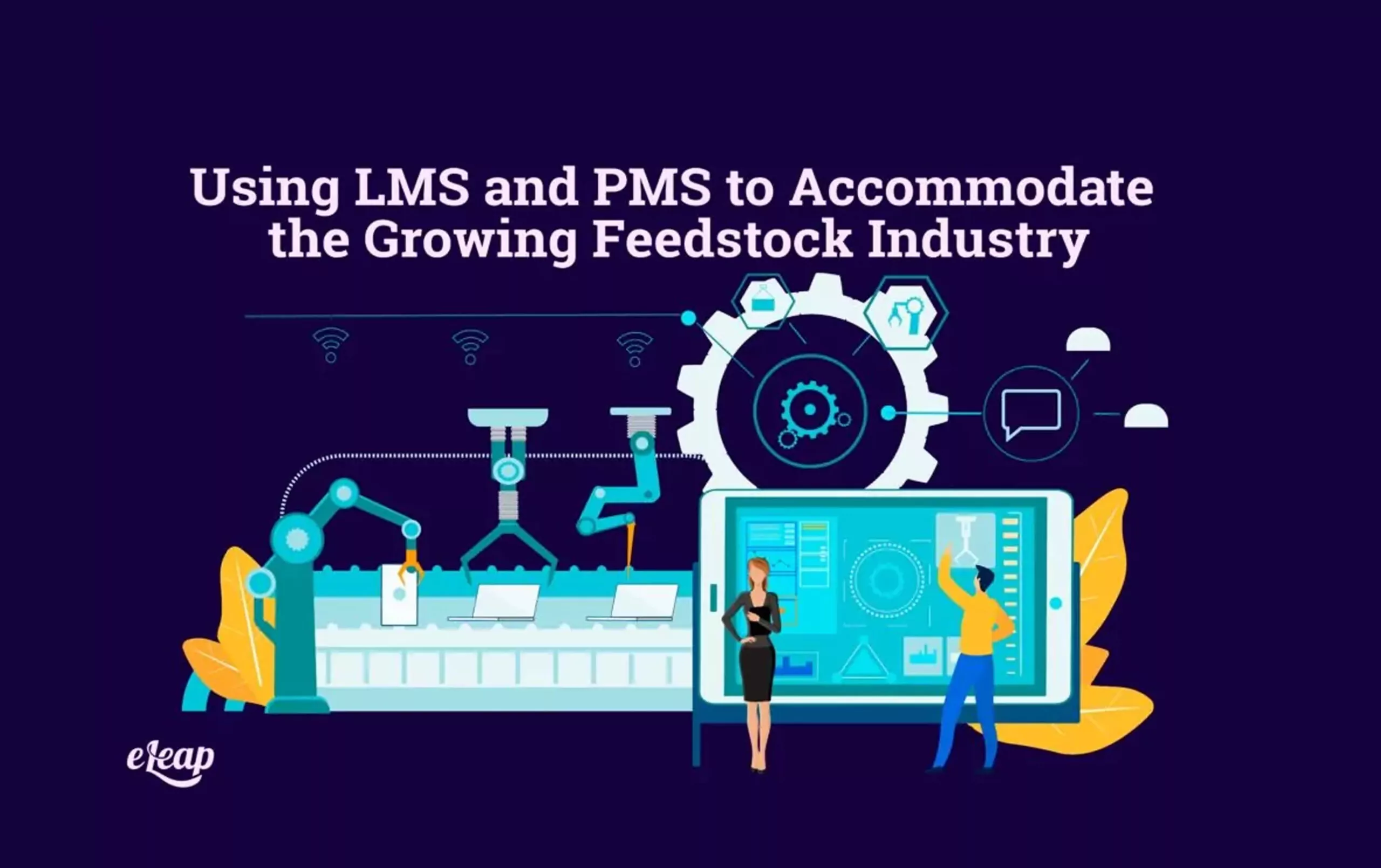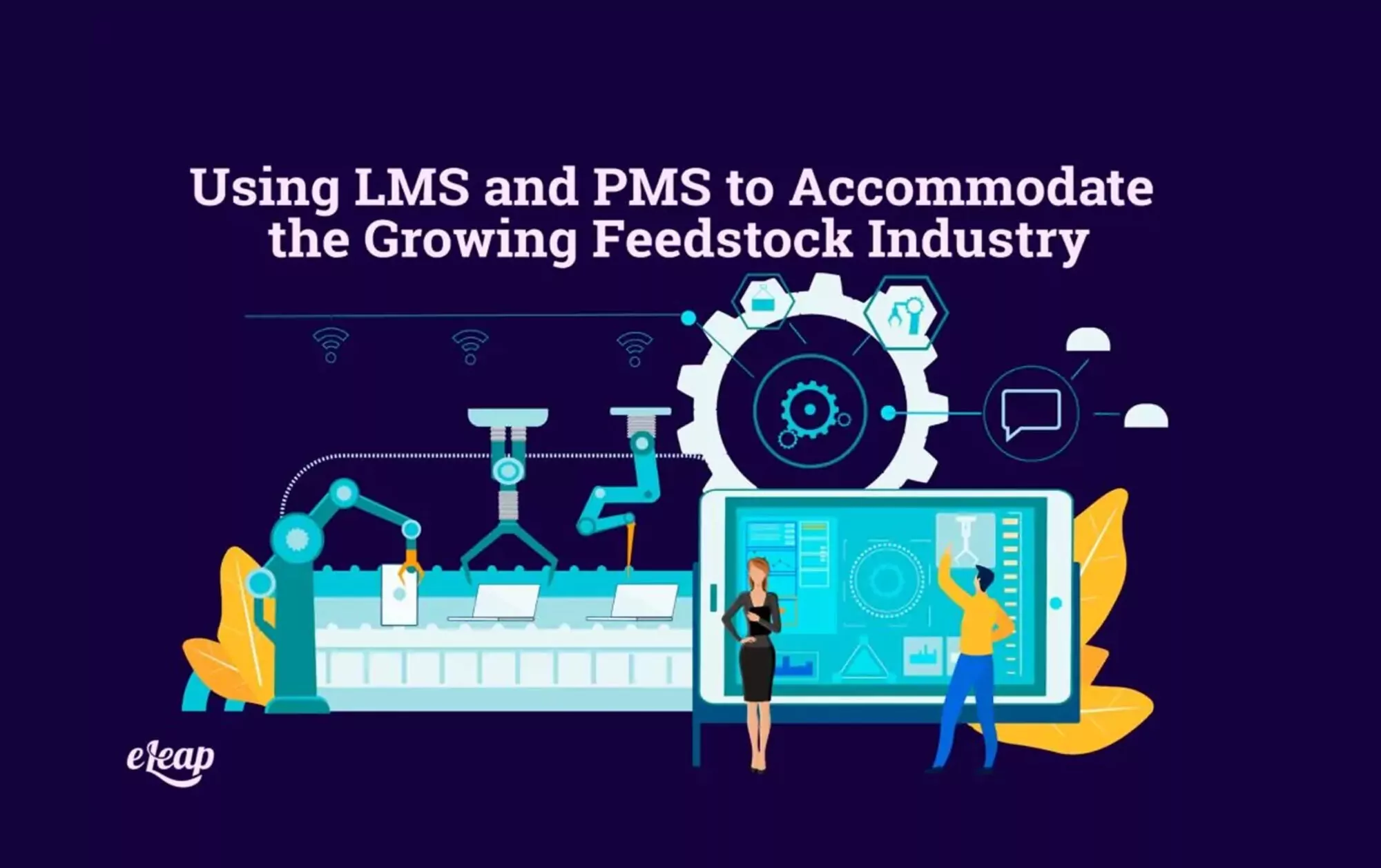Using LMS and PMS to Accommodate the Growing Feedstock Industry

The feedstock industry is quickly becoming one of life science’s most significant business sectors. The cutting-edge technology is incredibly beneficial and highly intriguing. Explore how eLeaP®’s Performance Management Platform can simplify evaluations, boost productivity, and drive measurable results.
However, it also takes constant updating and new materials to keep training programs current. Any new industry commonly runs into these same issues.
When an organization is new within an already new industry, the influx of new information and technology can make it challenging to optimize your learning program.
This is where having the right LMS program can efficiently optimize your course material. Implementing the newest materials and graphics can keep your students engaged and ensure they are receiving the most relevant information regarding the feedstock process.
The process of composting on an industrial scale requires appropriate knowledge of the scientific elements, as well as an understanding of the necessary equipment. Feedstock and composting require employees to deal with dangerous fuels like ethanol, so proper training is paramount. Let’s examine how using the right LMS system can prepare students for the composting industry.

Educating Students on the Composting Industry
The feedstock and composting industry has a lot of information for prospective employees to digest. An LMS program should implement the following elements:
- Animal welfare
- Worker health and safety
- Equipment safety
- Farm and organization procedures
- Scientific and technological information
Animal Welfare, Worker Health and Safety, and Compliance
An LMS will help implement animal welfare educational elements and the compliance surrounding this topic. Instructors can use training programs to prepare students for hands-on situations.
Exams and assessments ensure students have a firm grasp of the elements of proper animal welfare. Using graphics and other visuals can assist with these particular modules.
The most crucial aspect is compliance with animal welfare laws. Using LMS software can track and record proper compliance training. It becomes incredibly easy to prove your compliance training in the event of an audit when you have the right LMS system.
Worker health and workplace safety are also vital. OSHA and other associations closely monitor organizations’ compliance within the composting and feedstock industry.
Using modules with different benchmarks for progress can be the perfect way to track worker health and safety progress. Message boards and chats can also efficiently engage your students in these topics.
Farm and Organization Procedures
Videos and other instructional material can be uploaded to educate employees on specific farm and organization procedures. One of the most important benefits is that once you’ve optimized your training program, you can save the best videos and graphics as permanent training material.
This is important for a fledgling industry with plenty of new companies when you’re first developing a uniform curriculum. This is one of the most essential elements of obtaining a specific organizational image and establishing your presence.
Learning management systems aren’t the only necessary tool that the feedstock industry can take advantage of. Performance management systems can also be advantageous.
Using a PMS to Monitor Employees in the Composting Industry
Monitoring the performance of employees is vital in an industry where attention to safety and health is so important. It’s not just the health of other employees that is important, but the welfare of the animals is also in the spotlight.
Animal welfare isn’t only crucial at the organizational level and monitored industry-wide. Using performance management software can help you understand how well employees are following industry standards.
Assessments and other tests can help you avoid fines and other serious levies. Getting employees’ insight into how the workplace can be safer is also important.
Monitoring Employee Performance Leads to Efficient Production
When you are able to monitor employee production and time management, you can gauge what methods are working the best. In the composting and feedstock industry, the methods you use to produce energy from different materials are fundamental.
If employees aren’t using the right procedures to turn these items into energy sources, potentially useful resources could be lost. This isn’t only detrimental to your company but the environment as well.
Ensuring that your employees are using the most efficient methods of composting and combustion improves workplace safety and your bottom line at the end of the year.
Satisfying Regulations
Because composting and feedstock companies produce materials such as ethanol and other fuel supplements, it’s a given that many associations and organizations monitor these production methods daily. One wrong move during an audit could cost an organization a ton of money or, even worse, the ability to do business in the feedstock and composting industry.
Performance management systems and learning management systems ensure that your employees learn the proper methods and later implement these methods. Every certification and regulatory training module can be logged and proven. The ability to prove your employees are following procedure through performance management methods will also give your company a reputation for safety and quality.
This can help attract employees in the future, as well as improve your company image as a whole. Being displayed as a leader in your field can benefit you and give you substantial advantages over your competition in a new industry.
Accolades like the ones mentioned will also give your company the advantage of bidding for valuable projects and different research opportunities. You will also draw the best of the best in the industry to work for your company.
Using the right combination of an LMS and a PMS can be a serious part of your company’s planning and growth strategy. These two programs can be used as a one-to-two combination to ensure employees receive the proper training and implement the things they learned in the future. Coupled together, having a quality program in both areas can establish and maintain an atmosphere of excellence and achievement throughout your organization.